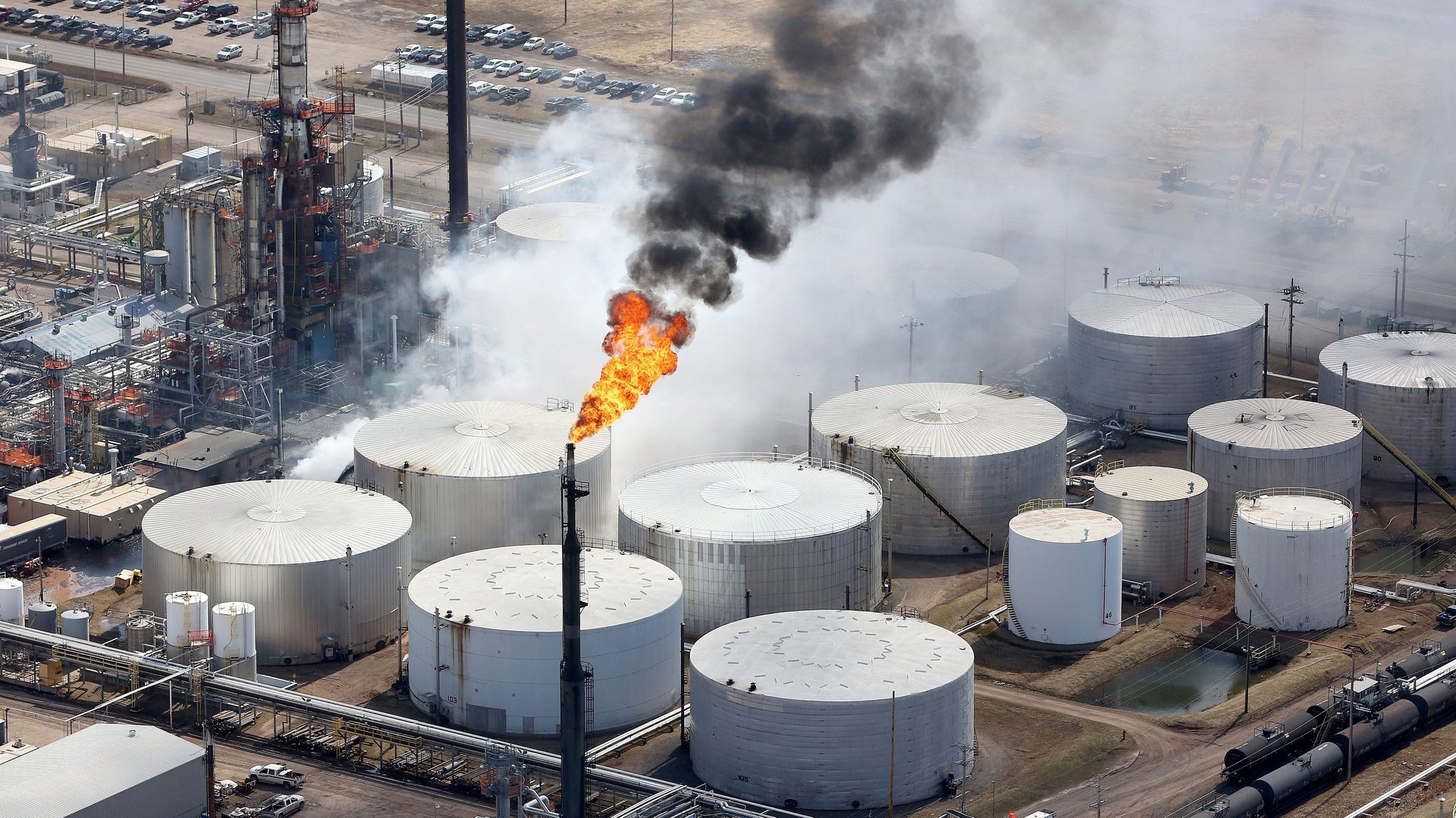Linguistic analysis shows oil companies are giving up on climate change
Oil companies don’t like talking about climate change. As the prime movers of fossil fuels, they’d probably prefer not to mention it at all. But sometimes outside pressure forces companies to do things they don’t like.


Oil companies don’t like talking about climate change. As the prime movers of fossil fuels, they’d probably prefer not to mention it at all. But sometimes outside pressure forces companies to do things they don’t like.
That’s where “corporate social responsibility” (CSR) reports come in. Issued annually by many large companies, these reports assess performance on measures that go beyond the bottom line, like environmental protection or human rights.
Oil companies don’t have to release CSRs, but more than three-quarters of them do anyway. This is where they address the hairy issue of climate change, caused in no small part by their own products. It’s a topic they’d probably rather avoid, and increasingly, that’s exactly what they’re doing.
These companies are mentioning the phrase “climate change” less and less in their social responsibility reports, as the chart below shows. It’s the result of a new paper by Sylvia Jaworska, a linguist at the University of Reading in the UK.

Jaworska created a dataset comprising the CSRs of every major oil company that produces them, from 2000 to 2013. Altogether, it includes 294 reports, and nearly 15 million words from the likes of Gazprom, Exxon, BP, Sinopec, Norsk, and others.
Beyond the “climate change” drop, the paper has several interesting findings. It shows, for example, that these companies really don’t like the term “global warming,” which is almost never used, except for a brief jump in 2001. “Warming,” after all, sounds worse than nondescript “change.”
More generally, Jaworska’s results reveal that oil companies are gradually becoming more passive about climate change. It’s not just that they are using the term less; they’re literally using more passive language around the term “climate change.”
Jaworska parsed out the terms that frequently appear next to or near “climate change” in these reports, or “collocations,” as linguists call them. At the peak of the chart, when companies were mentioning climate change more often, collocations showed a relatively active approach to global warming. The most frequently used word, for example, was “combat.”
But as the term “climate change” began to decline in use, the top collocations became “convention” and “risks.”
“Risks” is interesting. The rise of that term shows that oil companies are presenting climate change less as an environmental issue and more as a threat to their industry, Jaworska suggests. One report says, “The raising awareness of the risks connected to climate change can seriously affect energy demand,” not mentioning its possible effect on humans or nature.
Top “climate change” collocations from the years…
Oil companies indisputably play a role in causing climate change. But judging by the way they discuss climate change in their CSRs, they’re less and less sure about their role in stopping it.